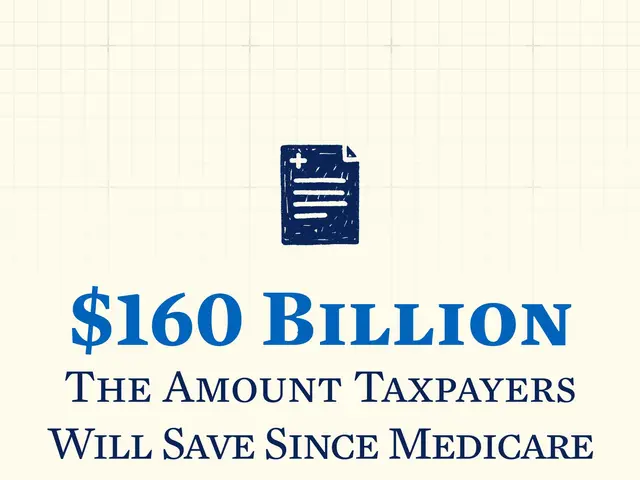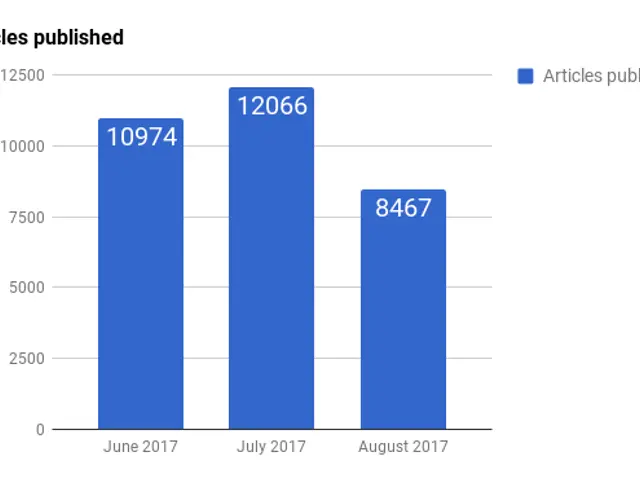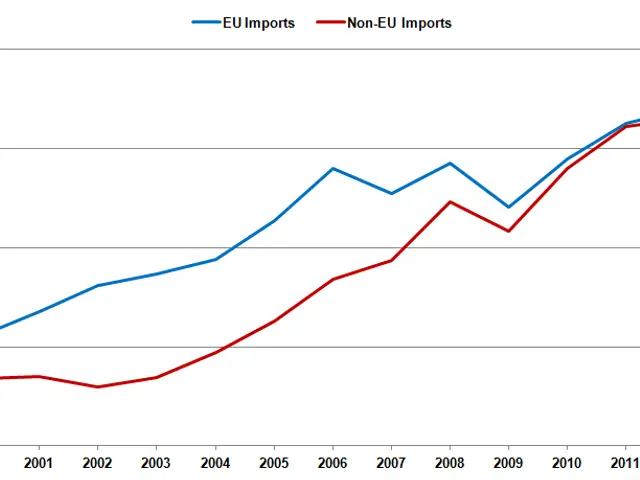Taking a Stand: Chancellor Friedrich Merz Faces the China Challenge
- by Bernd Ziesemer
- 2 Min
Merz demonstrates insufficient resolve towards China's policies - Friedrich Merz demonstrates a lack of courage in confronting China's diplomatic challenges.
The coalition agreement of the new federal government dedicates a mere 11 lines out of its 146 pages to the topic of China. It's a slight departure from the "business as usual" stance of Olaf Scholz and Angela Merkel, promising to address "humanity's tasks" together with Xi Jinping, yet maintaining the observation of rules and the continuation of a "de-risking" policy. However, one sentence in the document hints at a possible shift: "Elements of systemic rivalry" have been brought to the fore by China's actions.
Neither Chancellor Friedrich Merz nor his foreign and economic ministers, Johann Wadephul and Katherina Reiche, have deep China expertise, making it challenging to fill the gaps in the contract with practical politics. Unlike in Ukraine policy, it's unclear how the new government will distinguish itself from the old one, potentially leaving the door open for lobbyists from German industry and Chinese state-owned enterprises to dominate the narrative.
China expert Andreas Fulda aptly described Merkel and Scholz's policy towards the People's Republic as "outsourced" to large companies like BASF or VW. Given the new government's desire to present itself as particularly "business-friendly", there's a danger that this flawed strategy will continue.
The Daunting China Landscape Awaits
In the next four years, the Merz government will face significantly more challenges regarding China than its predecessors. In the short term, there's a risk that Germany will get caught in the crossfire of the trade war between the US and China. The influx of Chinese exports and dumping prices poses a significant threat to German business interests. Moreover, China's growing support for Russia's war against Ukraine could force the new federal government to finally impose secondary sanctions on Chinese companies. Lastly, Germany must prepare for the situation around Taiwan to escalate further, with disastrous consequences for the global economy.
It was Olaf Scholz personally who resisted a tougher stance against Beijing. His attempts to prevent EU-wide tariffs on Chinese car exports and the unusual back-and-forth over Huawei and China's attempts to infiltrate Europe's critical infrastructure are examples of his efforts. The Merz government will have to decide whether it takes a different course in such concrete disputes. As the German government holds the "key to a more cohesive and effective European stance towards China", as foreign policy expert Noah Barkin writes in the latest newsletter of the German Marshall Fund, it's high time they use it.
Capital is a partner brand of stern. Selected content can be viewed with your stern subscription. More from Capital can be found on [www.stern.de/capital].
- Friedrich Merz
- China
- Xi Jinping
- Donald Trump
Further Insights
The new German government, led by Chancellor Friedrich Merz, has adopted a nuanced policy toward China that balances strategic rivalry and economic partnership. This approach differs from the previous administration in several key ways:
- Systemic Rivalry: The Merz government views China as a systemic rival, seeking to reduce one-sided dependencies, pursue de-risking policies, and invest in areas where cooperation benefits Germany while minimizing risks.[1][5]
- Economic Engagement: Despite the focus on rivalry, German businesses continue to invest heavily in China, particularly in the automotive and electric vehicle sectors.[1] In 2024, German foreign direct investment in China reached €7.3 billion.[1]
- EU Coordination: The new government consciously aims to align China policy more closely with European partners, striving to strengthen resilience and promote rule-based reciprocity in trade and investment.[1][5]
- Public Sentiment: Public opinion remains divided, with 30% of Germans viewing China as an ally or necessary partner, while 55% see it as a rival or adversary. This public sentiment influences the government's pragmatic approach to engaging with China.[1]
- One-China Policy: The government reaffirms its commitment to the One-China policy, emphasizing stability and international norms, particularly regarding Taiwan's status.[5]
Different Approach
- Increased Caution: The Merz government is more cautious about investments in China, warning of risks and emphasizing resilience, unlike previous administrations.[1]
- Shift in Rhetoric: Chancellor Merz has expressed a desire to reduce dependence on the Chinese market, favoring other markets like the US and South America, marking a shift in rhetoric from previous administrations that may have been more focused on maintaining strong bilateral relations without questioning dependency.[1]
- Enhanced EU Cooperation: The new government prioritizes closer coordination with EU partners on China policy, a step further than previous efforts, reflecting a desire for a more unified European stance on China.[5]
- The European Union, led by Chancellor Friedrich Merz, is committed to implementing the Paris Agreement, recognizing the urgency of climate action, even as they face the challenges posed by China.
- As war-and-conflicts between countries like Russia and Ukraine continue, the migration of people fleeing these regions could further complicate policy-and-legislation efforts in the European Union, particularly in relation to China.
- In the realm of general-news, conflicts of interest and lobbying by German industry and Chinese state-owned enterprises could influence policy-and-legislation decisions regarding China, potentially overshadowing concerns about crime-and-justice and accidents involving cars or even fires.
- In the long term, the Merz government may have to address the complex issue of human rights in China, balancing economic interests with moral obligations, as shown by the treatment of Uyghurs and other minorities.
- Amidst the China challenge, Chancellor Friedrich Merz must navigate the politics of the European Union, ensuring cooperation with other leaders while maintaining a firm stance on key issues like the Paris Agreement, migration, and human rights.









